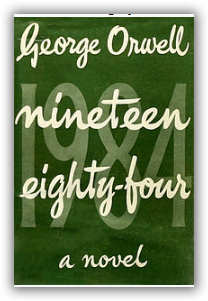aNewDomain.net — Obama and the Democrats are a case study in cognitive dissonance, says our Ted Rall. And any so-called NSA reforms are too little and way too late to return the minimum privacy rights to Americans and world citizens online. Here’s why.
Democrats in the United States overwhelmingly vote along with Republicans to suspend unemployment benefits. But then they turn around and launch a fierce broadside against their GOP allies for voting the same exact way they did.
They credit Edward Snowden for sparking a long overdue national debate over the NSA’s spying on Americans — yet in the same breath they call him a traitor.
Speaking of the NSA … what should we call what is happening here? The word “scandal” is woefully inadequate to describe the willful transformation of the world’s most-influential democracy into an authoritarian police state.
Anyway, Obama’s December 5th interview about the NSA thing was another example of cognitive dissonance: an internal conflict caused by simultaneously holding incongruous beliefs and attitudes.
“I’ll be proposing,” the president promised, “some self-restraint on the NSA and initiating some reforms that can give people some more confidence.”
Weak tea for sure. Two “somes” in one sentence? Still, a move in the right direction. (Albeit prompted by a “traitor.”)
But then, in his next breath, the former constitutional law professor uttered this beaut: “The NSA actually does a very good job about not engaging in domestic surveillance, not reading people’s emails, not listening to … the contents of their phone calls.”
Which is decidedly, unequivocally, non-dissonantly untrue.
In case you missed Psych 101, here’s the dissonance part: You can’t give freaked-out Americans “some” confidence that you plan to stop “some” of the gangraping of their privacy if you keep denying that said gangraping is occurring.
I.
Privacy is a fundamental human right. It is recognized in the United Nations Declaration of Human Rights as well as the International Covenant on Civil and Political Rights and in many other international and regional treaties.
In response to the Snowden revelations, the UN will soon vote on a resolution guaranteeing “the right to privacy in the digital age.” Navi Pillay, human rights chief for the UN, says the mass digital surveillance is no less serious a human rights violation than apartheid in South Africa and the Rwandan genocide.
II.
Americans are inconsistent about privacy. Even post-Snowden, a surprisingly low number of people (recently, 48%) tell pollsters they oppose the NSA’s all-encompassing programs to intercept, store and mine every single 0 and 1 pertaining to everyone, everywhere, forever.
Unlike other countries, the right to privacy is not enshrined in our constitution.
However, the Fourth Amendment does guarantee Americans’ right to be secure against “unreasonable searches and seizures.” If the English language has meaning, the NSA’s current spy programs violate this stricture.
III.
President Obama’s approval rating has plunged to a historical low due to two factors: his inept rollout of Obamacare and the NSA Thing. So Obama is under pressure to reassure Americans that they’re not being too spied upon.
IV.
On December 18th, Obama’s five-man panel of “national security experts” <rolls eyes> issued 46 recommendations to rein in the NSA.
It was not the most-glorious moment in American politics.
Glaringly, former CIA Acting Director Michael Morell called for more spying on Americans. Never mind telephony metadata, Morell said. Let’s sweep up more email! “I would argue actually that the email data is probably more valuable than the telephony data,” Morell told National Journal. “You can bet that the last thing a smart terrorist is going to do right now is call someone in the United States.”
The “most significant recommendation,” reported The New York Times, is that “logs of all American phone calls — so-called metadata…should remain in the hands of telecommunications companies or a private consortium, and a court order should be necessary each time analysts want to access the information of any individual “for queries and data mining.”
Word is, the phone companies don’t want the expense of storing all that crap, not to mention keeping Belorussian hackers out of it.
Other major recommendations include “banning the [NSA’s current] practice of undermining global encryption standards, banning industrial espionage [by the NSA on behalf of U.S. companies], requiring that Americans’ data be purged [periodically], allowing tech companies to [announce] when they receive “national security letters,” which would require judicial review, [and] creating a public interest advocate on the FISA court.”
So let’s give this to Obama: He kept his promise. This is “some” reassurance.
V.
Now it’s time for the assholes to push back.
Michael Hayden, former director of the NSA and the CIA, wants Obama to reject the panel’s recs — most of them, as weak as they are.
Because: terrorism.
“President Obama now has the burden of simply doing the right thing,” Hayden told USA Today. “And I think some of the right things with regard to the commission’s recommendations are not the popular things. They may not poll real well right now. They’ll poll damn well after the next attack, all right?”
Obama had might as well listen to Hayden. Not because terrorism is a significant threat to Americans — at an average of 13 to 15 American deaths a year worldwide, heart attacks suffered by people learning they’ve won lotteries are deadlier — but because the purpose of the proposed reforms can’t be achieved even if all 46 are adopted minus modifications.
“In our view,” Obama’s NSA panel concludes, “the current storage by the government of bulk metadata creates potential risks to public trust, personal privacy, and civil liberty.”
True. But only people who’ve been living in Beltway World longer than they can remember could honestly believe that anyone — Democrat, Republican, Martian — would feel better about having their phone data (and calls, and emails, and everything else) stored at a data farm owned by AT&T than one owned by the NSA.
For aNewDomain.net, I’m Ted Rall.
Based in New York, Ted Rall is a nationally-syndicated columnist, editorial cartoonist and war correspondent who specializes in Afghanistan and Central Asia. The author of 17 books, most-recently published The Book of Obama: How We Went From Hope and Change to the Age of Revolt, Rall is twice the winner of the Robert F. Kennedy Journalism Award and is a Pulitzer Prize finalist. Follow him @TedRall, check out his Facebook fan page and definitely follow his Google+ stream here. Ted’s upcoming book After We Kill You, We Will Welcome You As Honored Guests: Unembedded in Afghanistan is due out in 2014.













